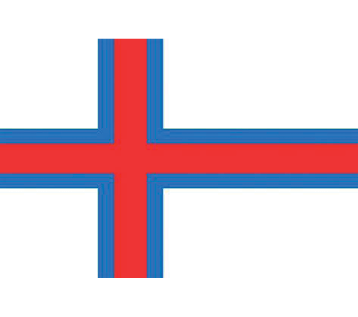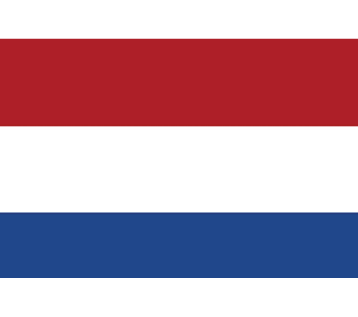- Home
- Sustainable Blue Economy Partnership’s First Joint Transnational Call
Sustainable Blue Economy Partnership’s first joint transnational call
Key facts
Funding: €
Contact: sbep.call-secretariat@agencerecherche.fr
Deadline pre-proposals:
14 Apr 2023
Deadline full proposals:
13 Sep 2023
Participating countries






















Belgian Science Policy Office - BELSPO
[BELSPO]
Flanders Innovation & Entrepreneurship
[VLAIO]
Fund for Scientific Research - FRS - FNRS
[FNRS]
Brazilian National Council of State Funding Agencies
[CONFAP]
Research & Innovation Foundation
[RIF]
Innovation Fund Denmark
[IFD]
Estonian Research Council
[ETAg ]
Ministry of the Environment
[KEM]
Ministry of Rural Affairs
[MEM]
Research Council Faroe Islands
[RCFI]
Research Council of Finland - AKA
[AKA]
Ministry of Agriculture and Forestry of Finland
[MMM]
National Research Agency - ANR
[ANR]
Federal Ministry of Research, Technology and Space - BMBF
[BMBF]
Icelandic Centre for Research
[RANNIS]
Marine Institute
[MI]
Ministry of Enterprises and Made in Italy
[MISE]
Ministry of University and Research
[MUR]
Latvian Council of Science - LZP
[LZP]
Research Council of Lithuania
[LMT]
Research Council of Norway
[RCN]
National Centre for Research and Development
[NCBR]
Commission for Coordination and Regional Development of the Centre - CCDRC
[CCDRC]
Foundation for Science and Technology - FCT
[FCT]
Regional Fund for Science and Technology
[FRCT]
Romanian Ministry of Research, Innovation and Digitization - MCID
[MCID]
Spanish State Research Agency
[AEI]
Center for Technological Development and Innovation
[CDTI]
A Swedish Research Council for Sustainable Development
[FORMAS]
Swedish National Space Agency
[SNSA]
Dutch Ministry of Agriculture, Nature and Food Quality
[IenW, LVVN]
Scientific and Technological Research Council of Türkiye
[TÜBİTAK]
Call documents
Call text (Updated 20 March) - Sustainable Blue Economy Partnership
Annex A – Theory of Change (Updated 3 March)
Annex B – National and regional funding regulations (Updated 03 April)
Annex C – List of beneficiaries of SBEP allowed to participate in R&I projects consortia (Updated 3 March)
Annex D – Pre-proposal form (Updated 3 March)
Annex E – Full proposal form (Updated 3 March)
Annex F – Open Access and Fair Data (Updated 3 March)
“The way forward: a thriving sustainable blue economy for a brighter future”
The Sustainable Blue Economy Partnership, a European partnership under the European Commission’s Research & Innovation Framework Programme Horizon Europe, is pleased to announce its first Joint transnational call entitled « The way forward: a thriving sustainable blue economy for a brighter future ».
The vision of the Sustainable Blue Economy Partnership is to design, steer and support a just and inclusive transition to a regenerative, resilient, and sustainable blue economy. This EU Partnership aims to boost the transformation needed towards a climate-neutral, sustainable, productive, and competitive blue economy by 2030 while creating and supporting the conditions for a sustainable ocean for the people by 2050.
This first co-funded call aims to support transnational research and innovation projects (36 months) addressing one of the five priority areas below:
- Planning and managing sea-uses at the regional level
- Development of offshore marine multi-use infrastructures to support the blue economy
- Climate-neutral, environmentally sustainable, and resource-efficient blue food and feed
- Green transition of Blue Food production
- Digital Twins of the Ocean (DTOs) test use cases at EU sea-basins and the Atlantic Ocean
These five priority areas were selected to maximise participation while reinforcing the European blue economy through innovative solutions and improved resilience of marine ecosystems. The priority areas embrace actionable routes from science to policy to observe, assess and mitigate the impacts of climate change on vital ecological assets such as biodiversity and other ecosystem services on which our economies depend, thus supporting coastal communities.
Projects in this Co-funded call must be impact-driven contributions to the transformation into a blue economy for a more resilient future and towards carbon neutrality targets, following an impact pathway approach.
Projects must be developed at a pan-European level and in the different European sea basins: the Mediterranean, the Black Sea, the Baltic Sea, the North Sea and the Atlantic Ocean and establish close cross-sectorial cooperation in the science, innovation, and economic sectors. Projects are expected to consider several European sea basins or, at least, to consider the impact of the projects on several European sea basins.
The first Sustainable Blue Economy Partnership (SBEP) Co-funded call pools national and regional financial resources through the participation of 36 funding organisations from 23 countries (19 Member-States: Belgium, Cyprus, Denmark, Estonia, Finland, France, Germany, Ireland, Italy, Latvia, Lithuania, Malta, Poland, Portugal, Romania, Slovenia, Spain, Sweden, The Netherlands, 4 Associated Countries: Faroe Islands, Iceland, Norway, Türkiye and 1 third country: Brazil) responsible for funding research and innovation actions in the blue economy, with financial support from the European Commission. The total budget is about 50 Million Euros.
To be eligible, research consortia must include partners from a minimum of three independent legal entities from three different countries participating in the call. Self-funded partners including partners from countries (and/or regions) not participating in this Co-funded call are allowed but do not contribute to the minimum eligible consortium size. Stakeholder engagement as partners or self-funded partners is encouraged (according to national/regional regulations) to enhance innovation, policy, and societal relevance and ultimately the impact of the projects.
For more information about the 19 projects selected for funding, priority areas, consortium members, and project abstract, please consult this detailed description.

